Abstract:
A 2018 statistic by the United Nations mapped out the urban population living in slums with 1.3 billion people living in informal settlements. “Make cities and human settlements inclusive, safe, resilient and sustainable” (2018). Rio de Janeiro’s biggest and oldest favela slum Rocinha will be used as a case study to understand the problem, living conditions and provide material solutions that possibly enhance certain characteristics of the existing and future dwellers within this context.
An initial qualitative study of the living conditions and cultural aspects was conducted to inform the possibilities of a design intervention. A study conducted in 2012, showed the average household produced an estimate of 133 kg/m3, with the greatest quantities being organic, plastic and paper/cardboard waste “Challenges and Proposals to Improve Waste Management in the Rocinha Favela” (2020). Furthermore, these types of waste have the potential to be upcycled to benefit the living conditions. Possible applications are plastic blocks created by pressing plastic waste “Precious Plastics”, roof tiles tiles “Recycled plastic bricks stronger than concrete” (Oscar Marin, Atlas of the Future (March, 2021) and organic waste to create food “Favela Orgánica: Movement to promote organic food and recycling cooking practices in the favelas of Rio de Janeiro ” These material qualities such as reused plastics, bricks and organic waste can be seen all across the urban fabric. That dwellers do what they can with what they have access to in their surroundings, which leads to acknowledge there are certain limitations in the way they build and use material, but also there are opportunities.
This project will address these opportunities, material elements of how different elements of the structures can be made using recycled plastics, performance of how building materials can be improved by using computational methods through design, understanding the role of the community, and lastly, material solutions that respond to the current trends of how recycled plastics are used to create construction materials.
Rocinha-Canta will look at how material performance through waste compounds enhances the execution of building techniques in the constant urban expansion of slums in aim for a circular material approach.


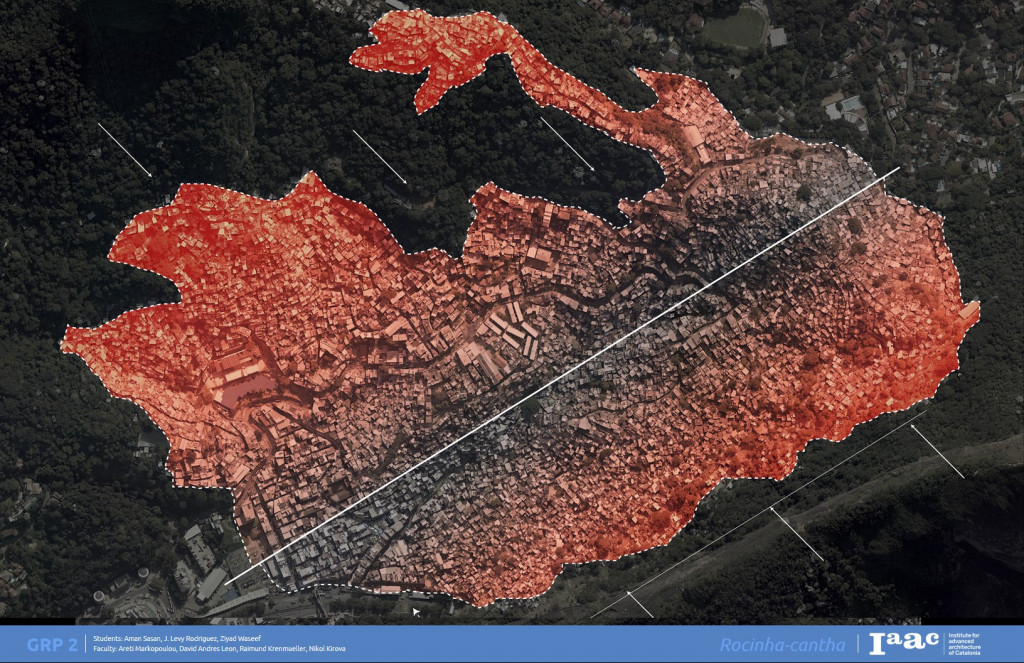
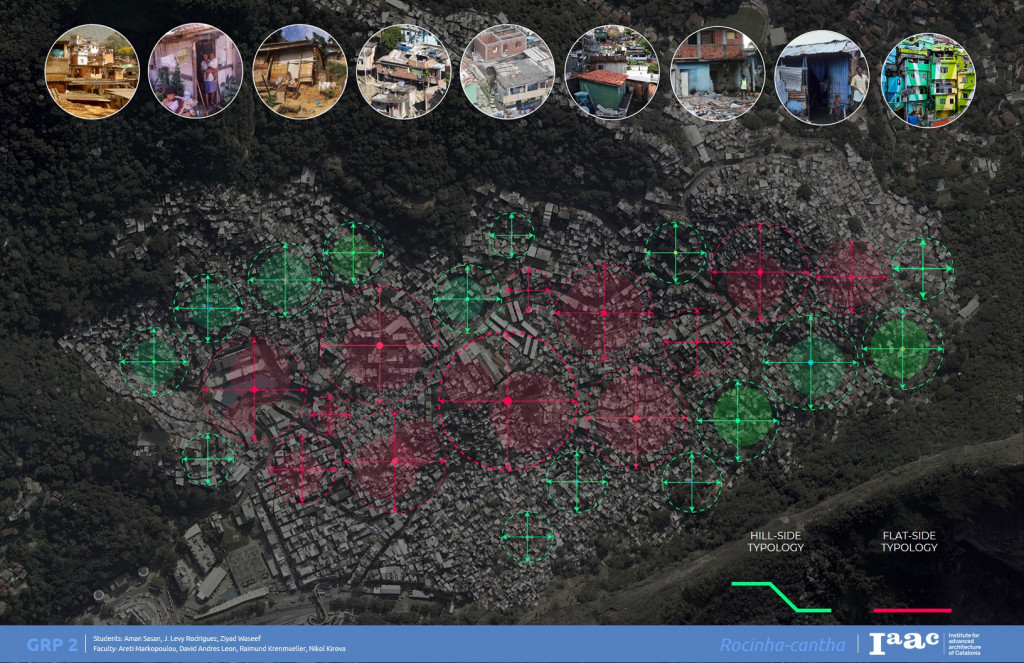
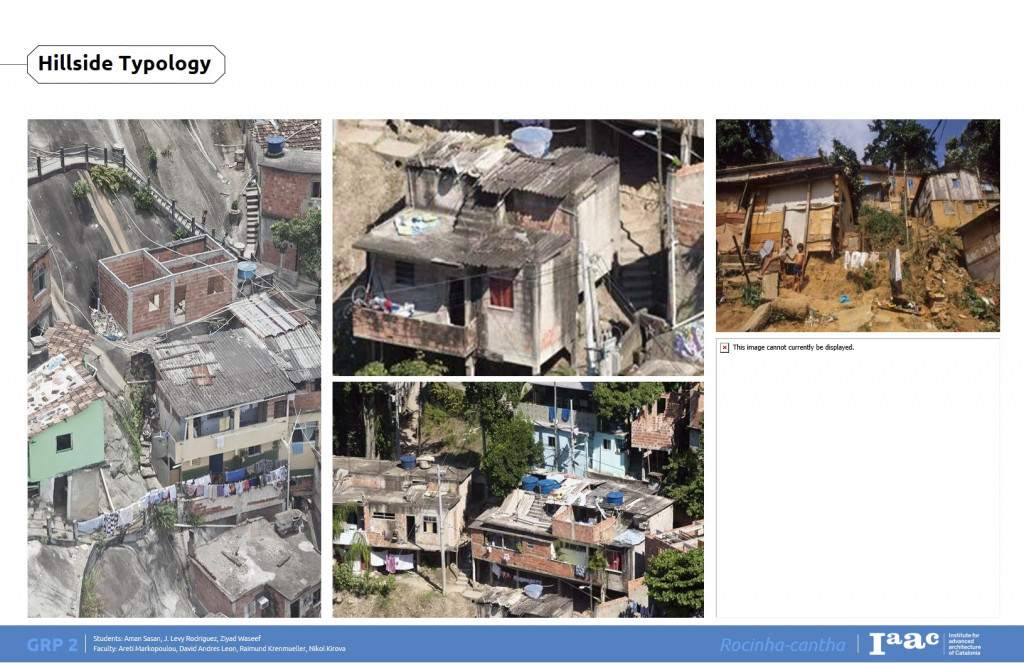
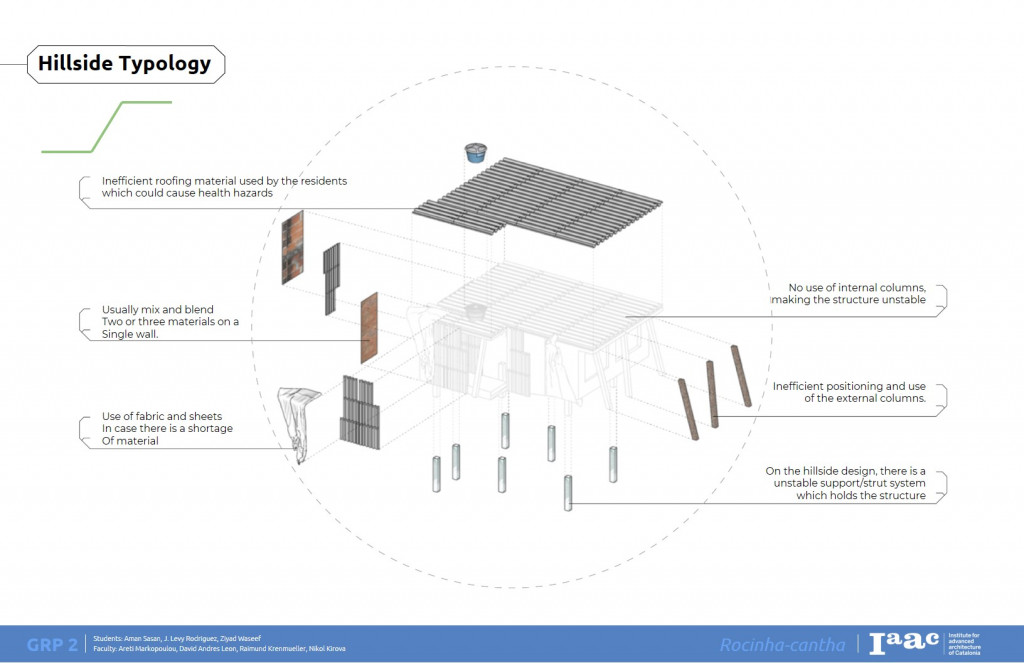
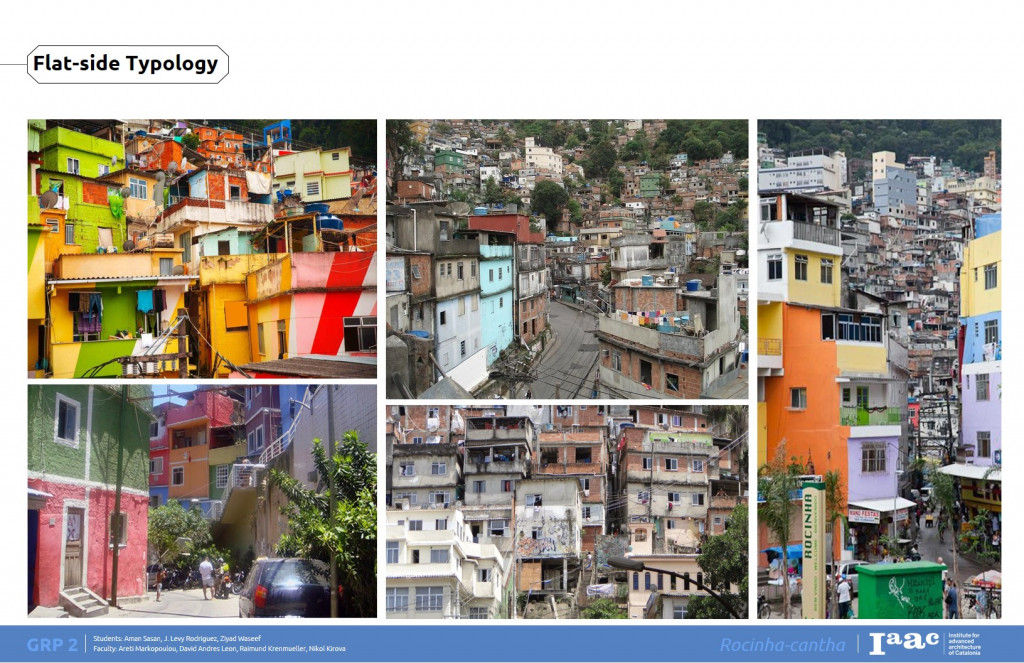
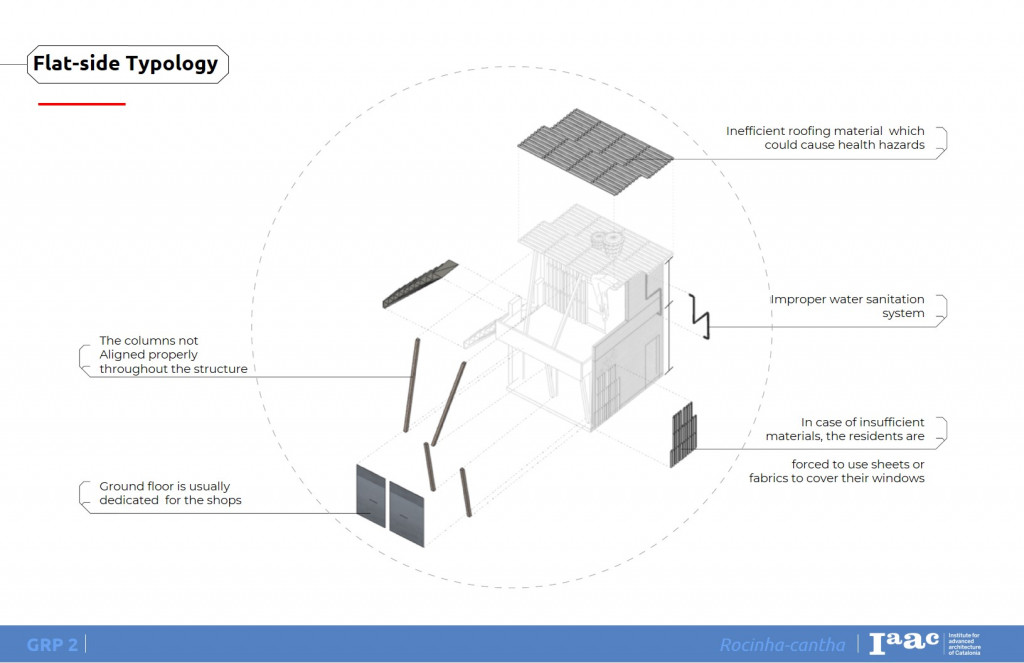
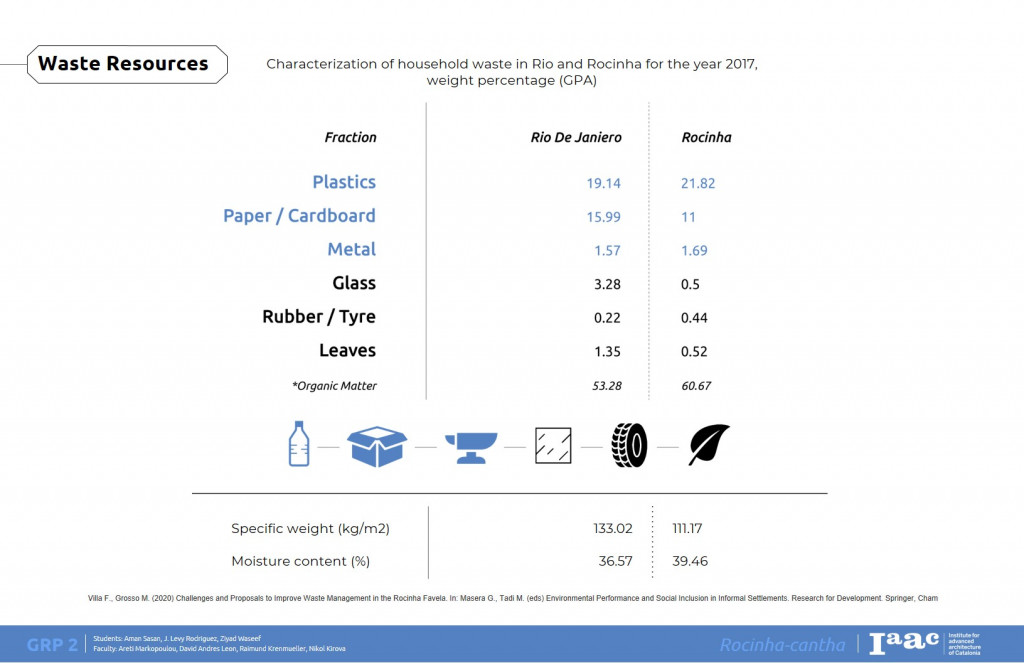
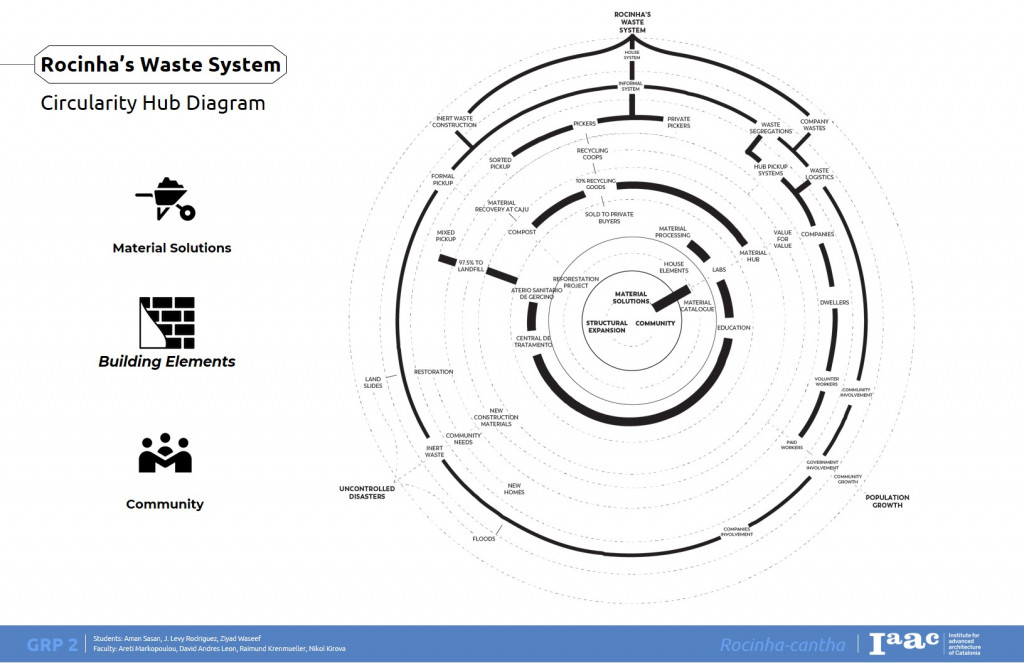
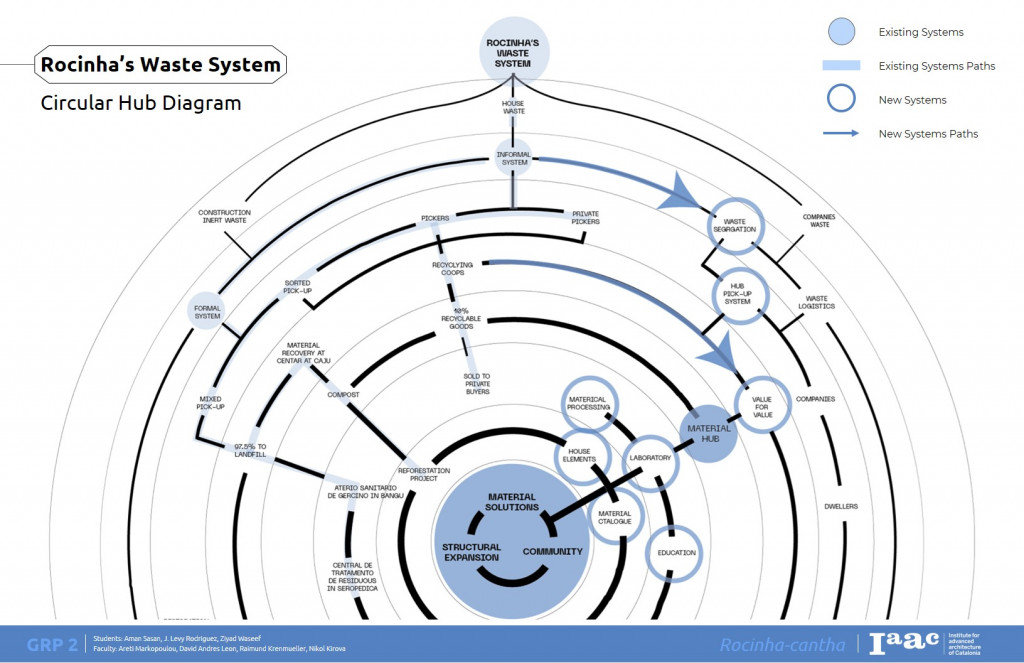
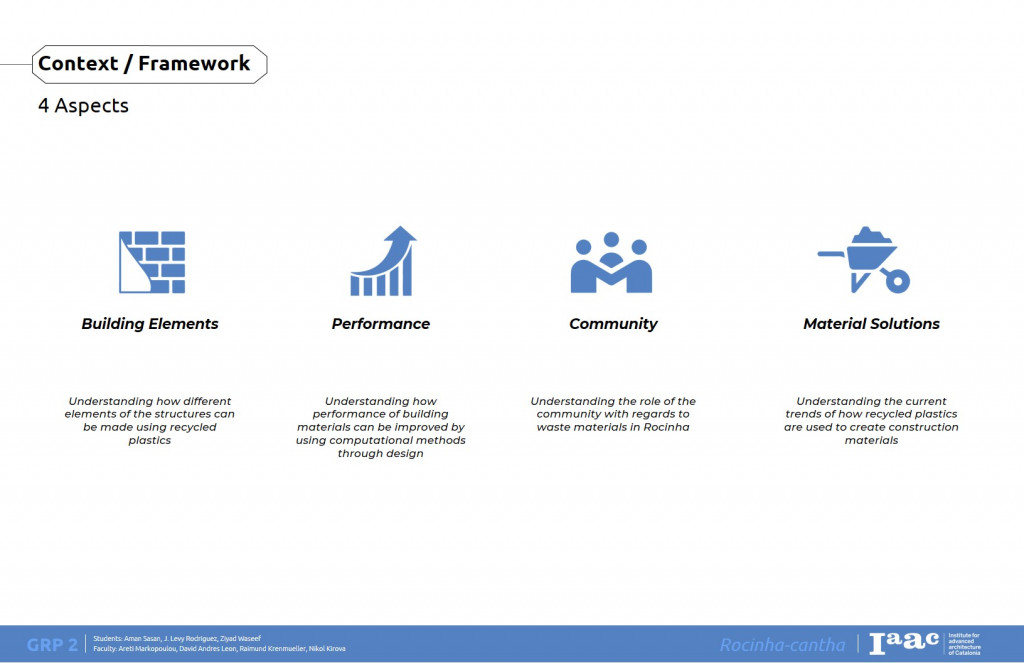
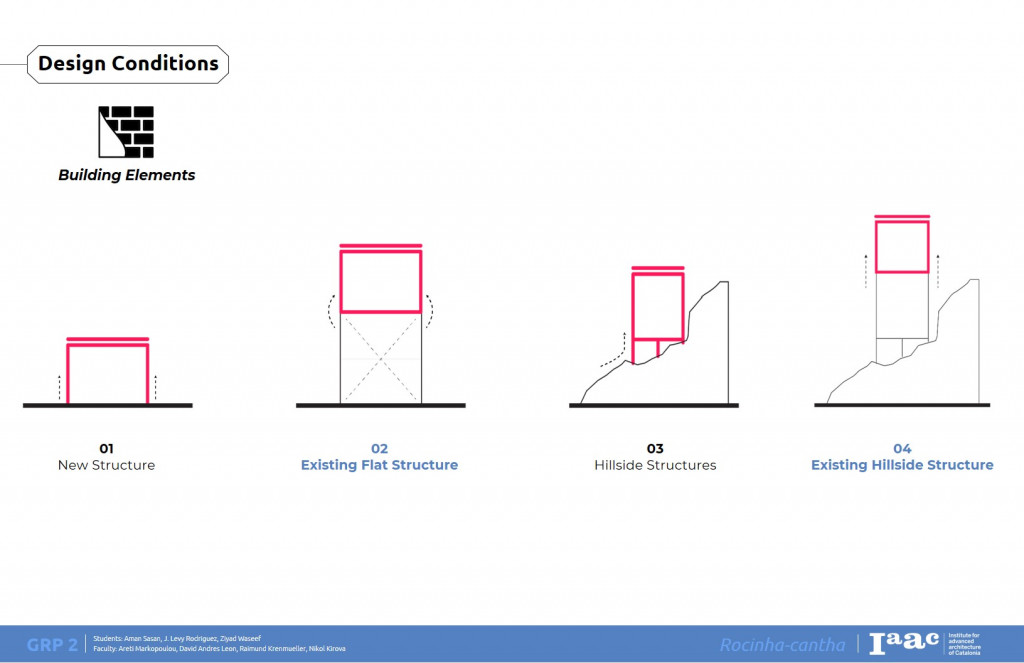


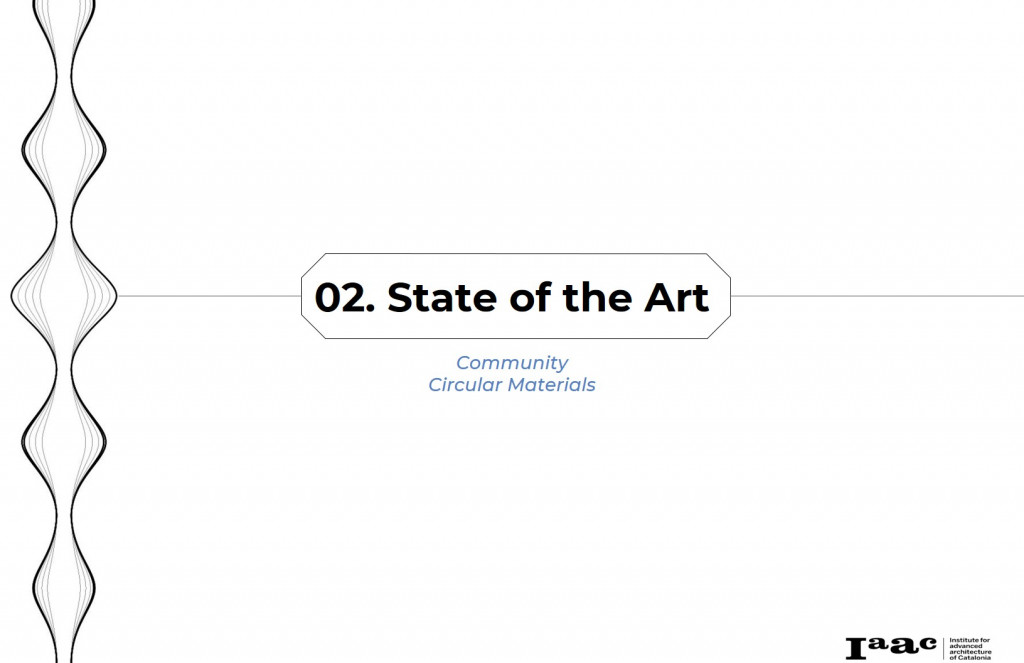
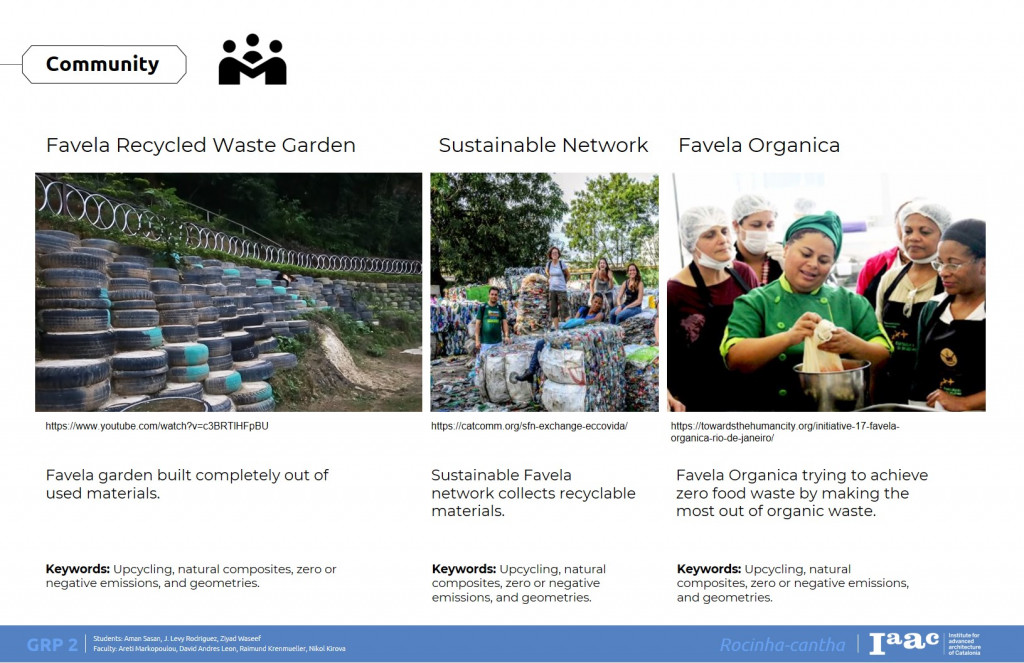
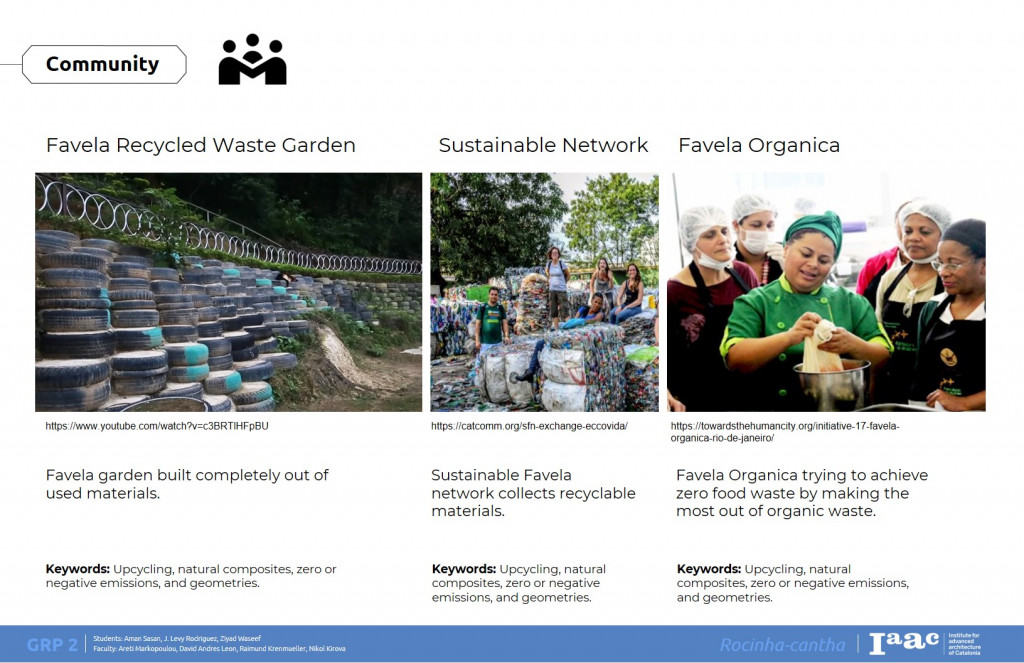
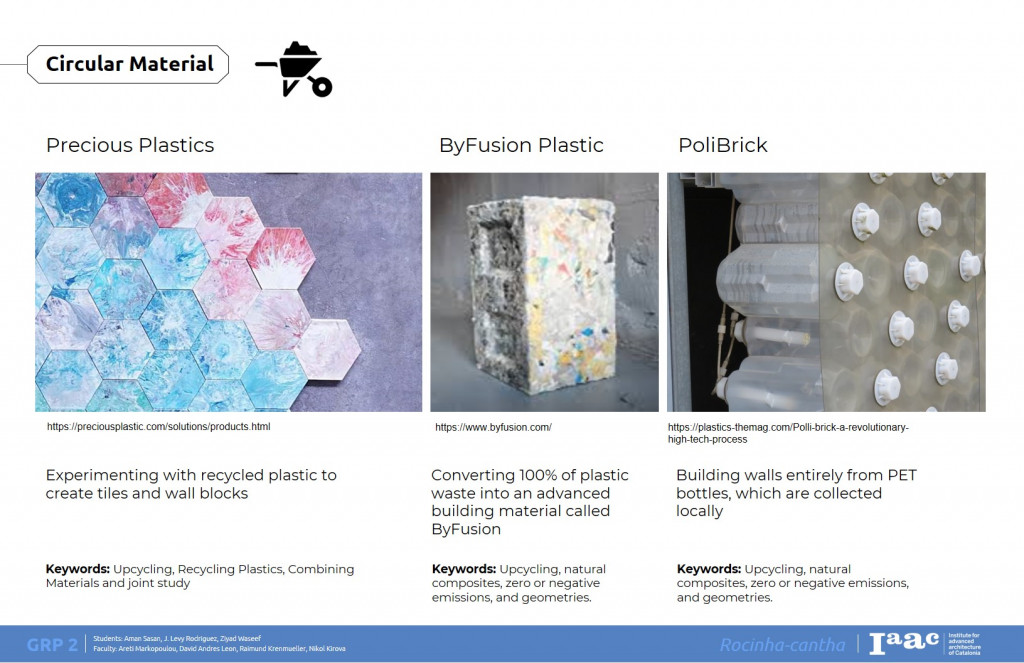
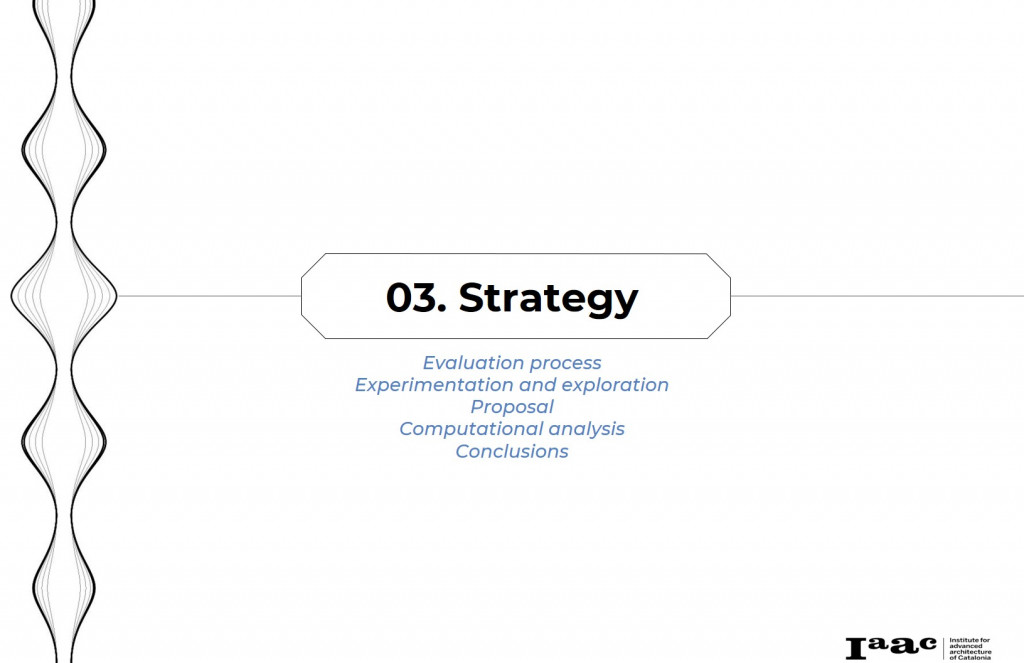
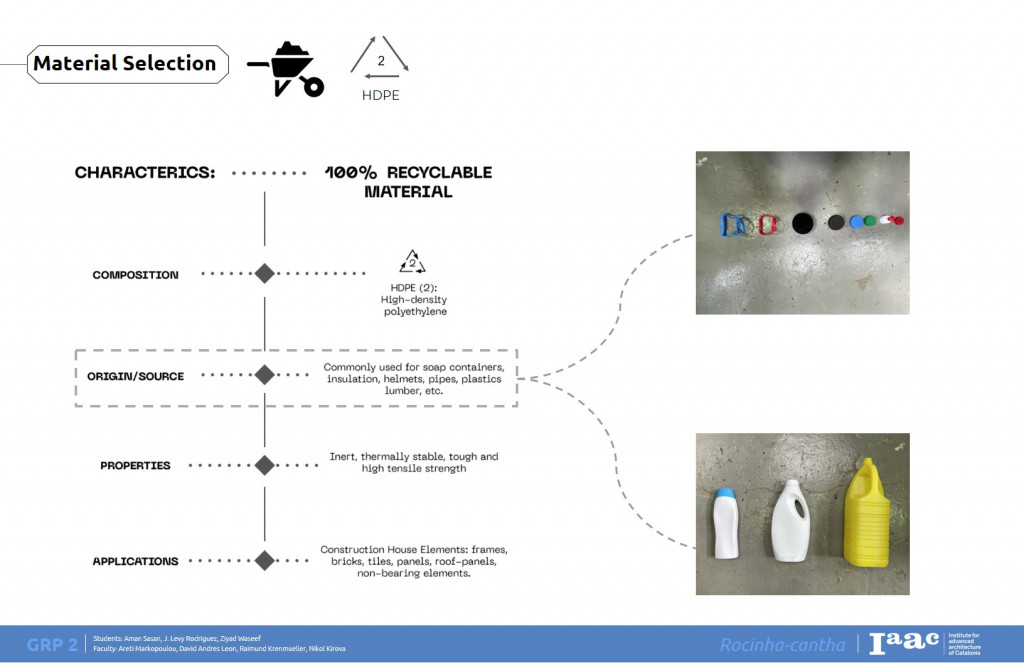
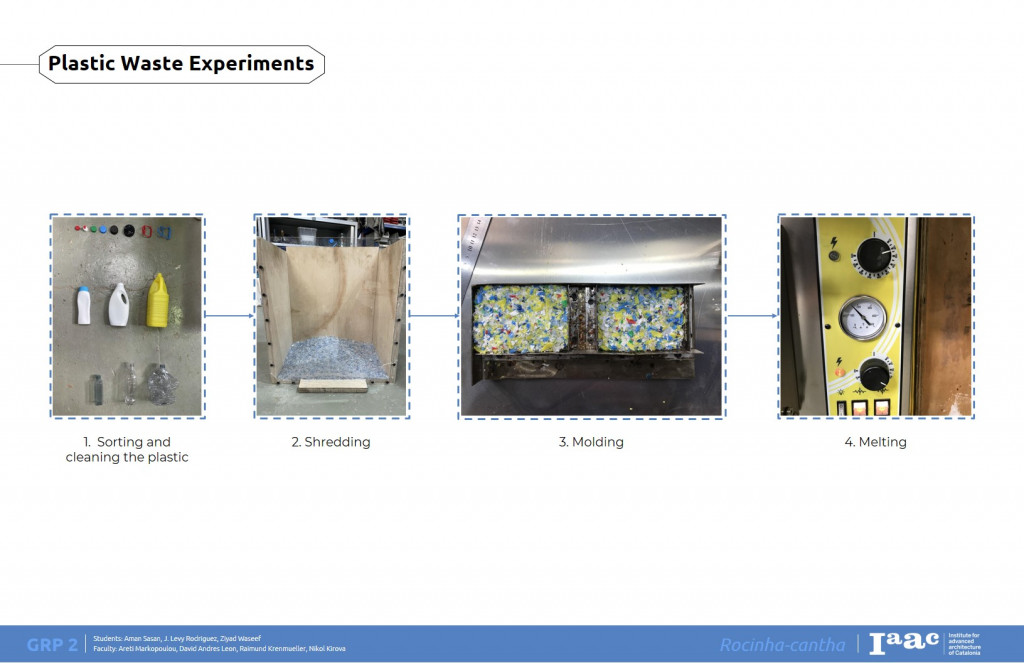
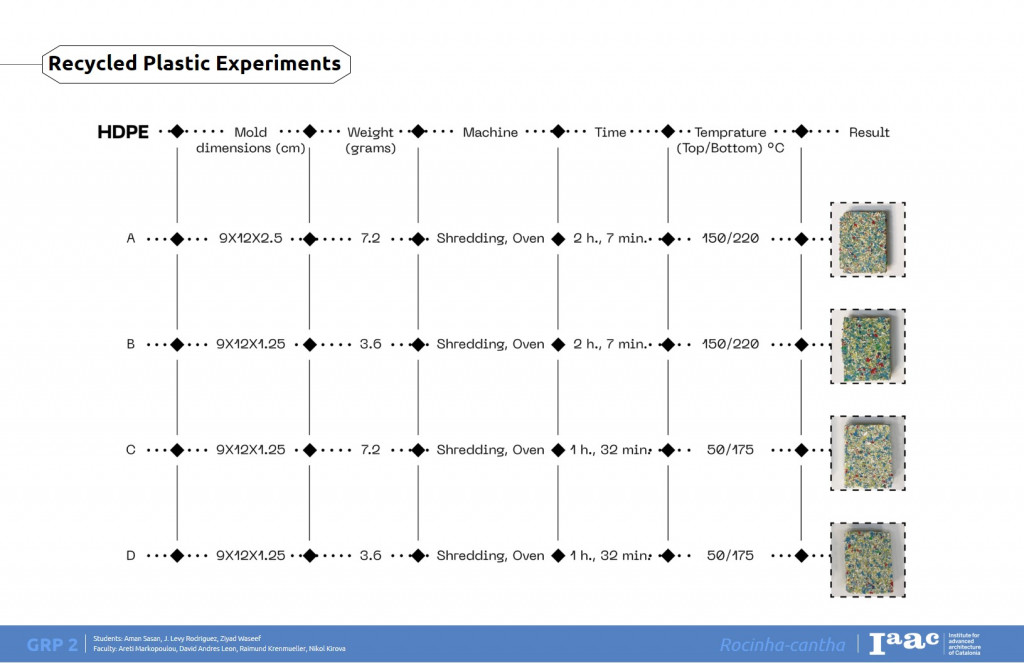
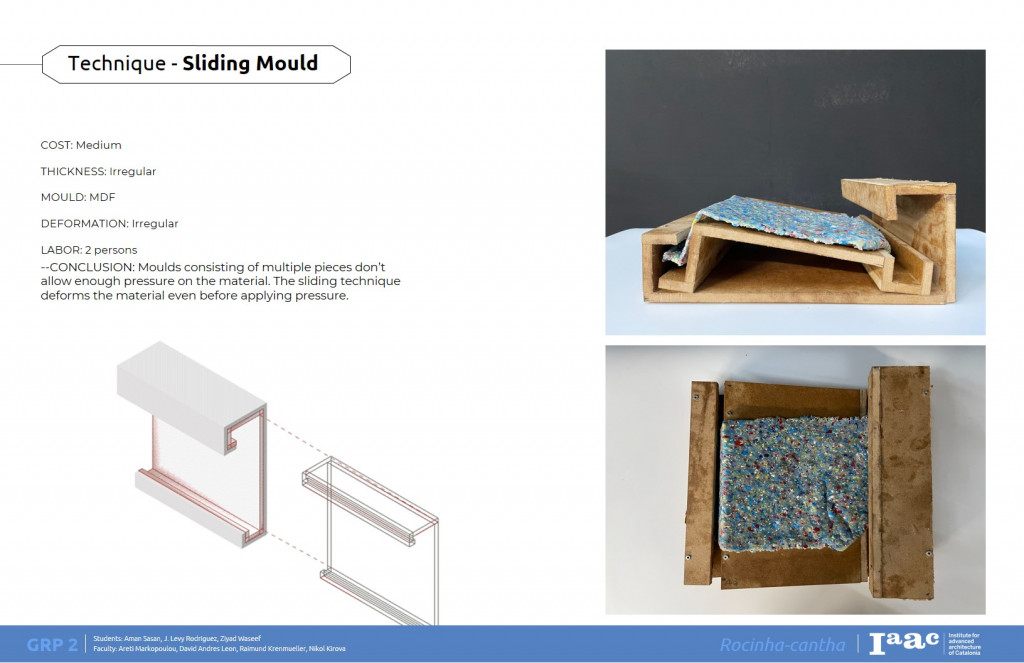
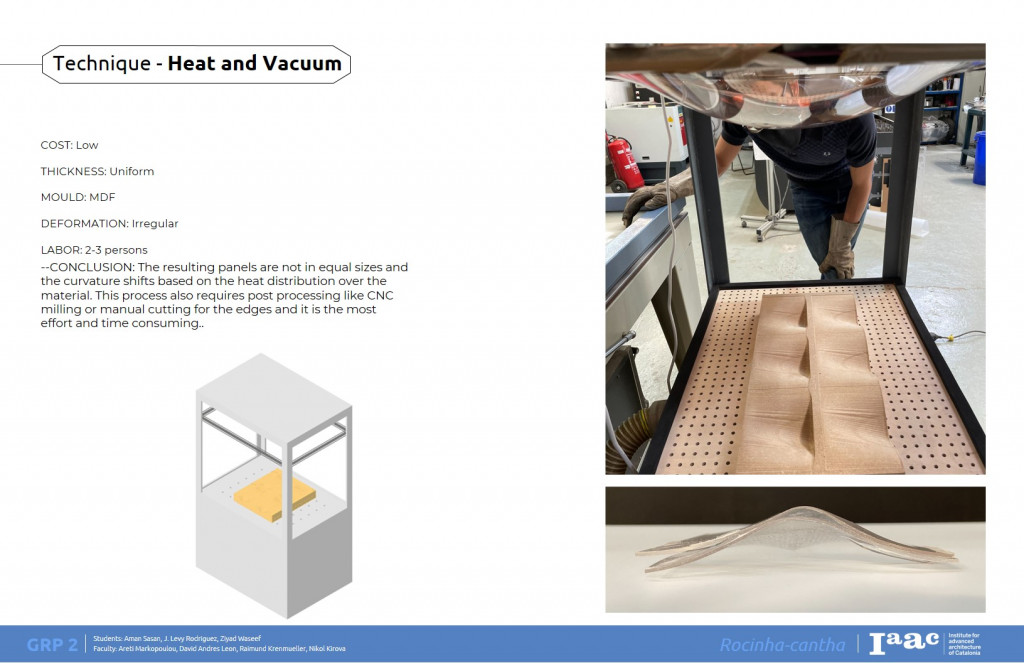
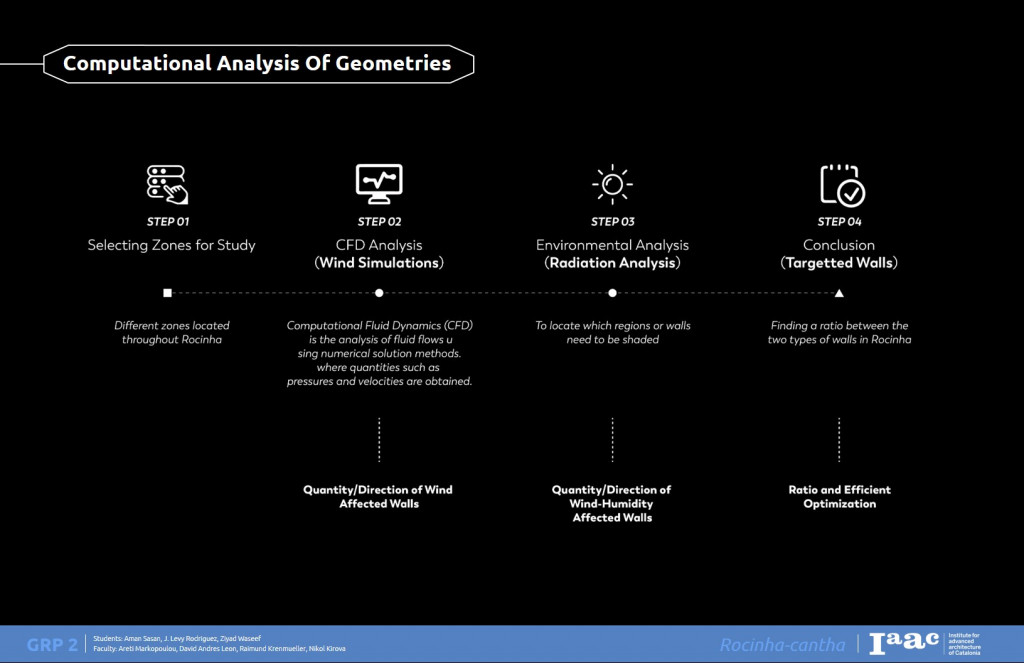
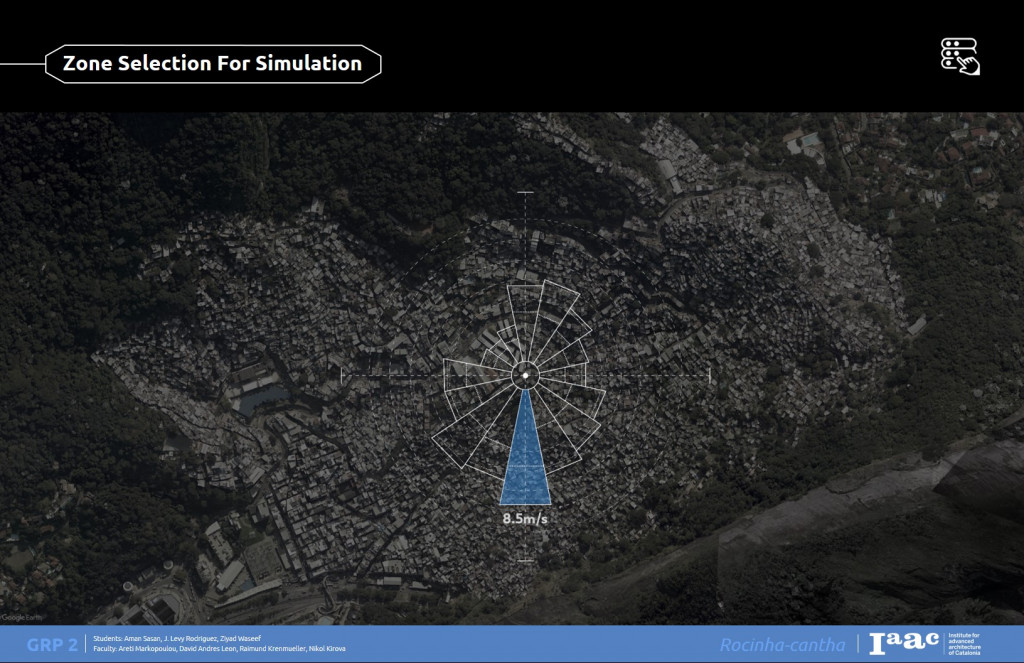
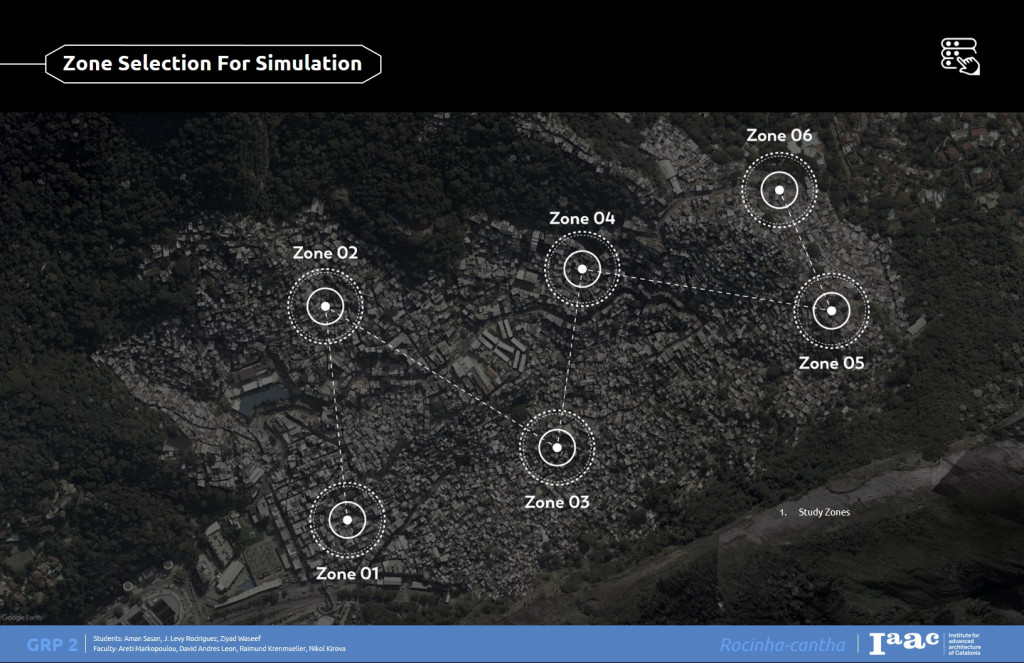
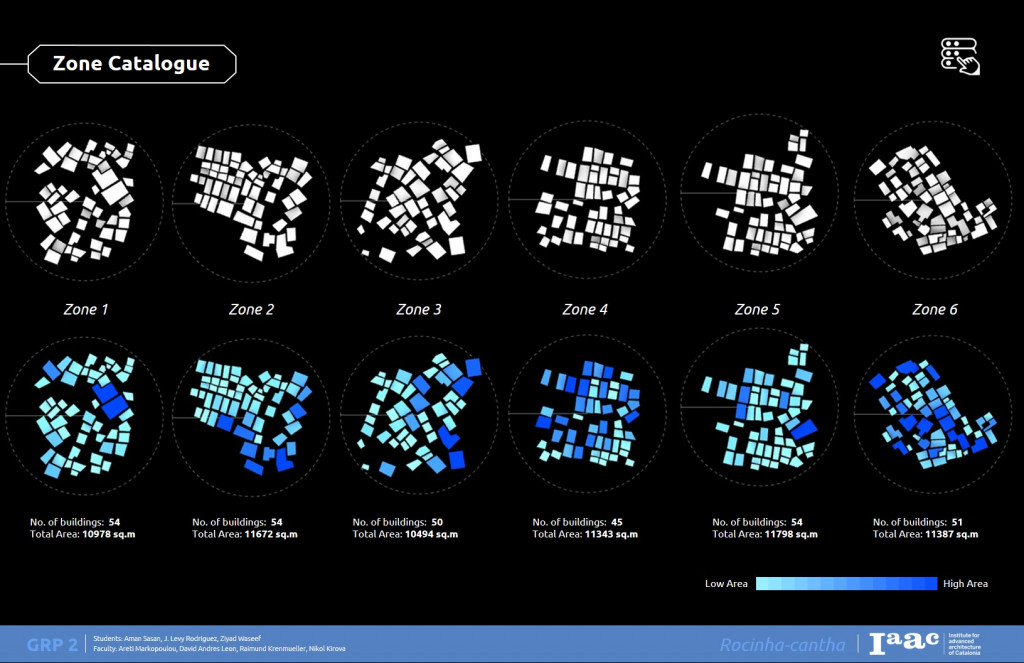
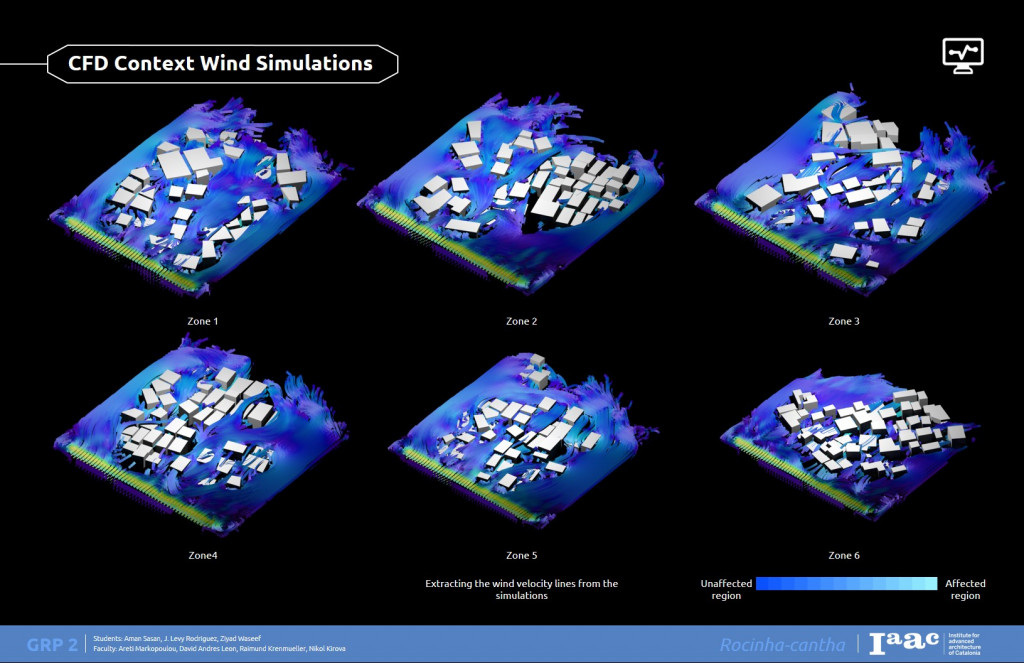
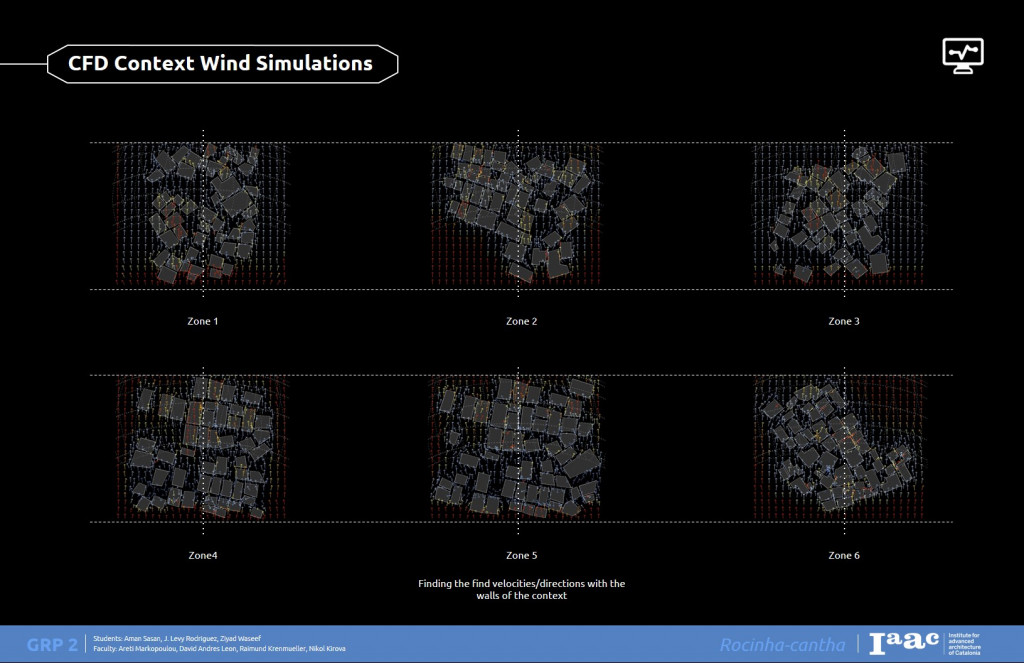
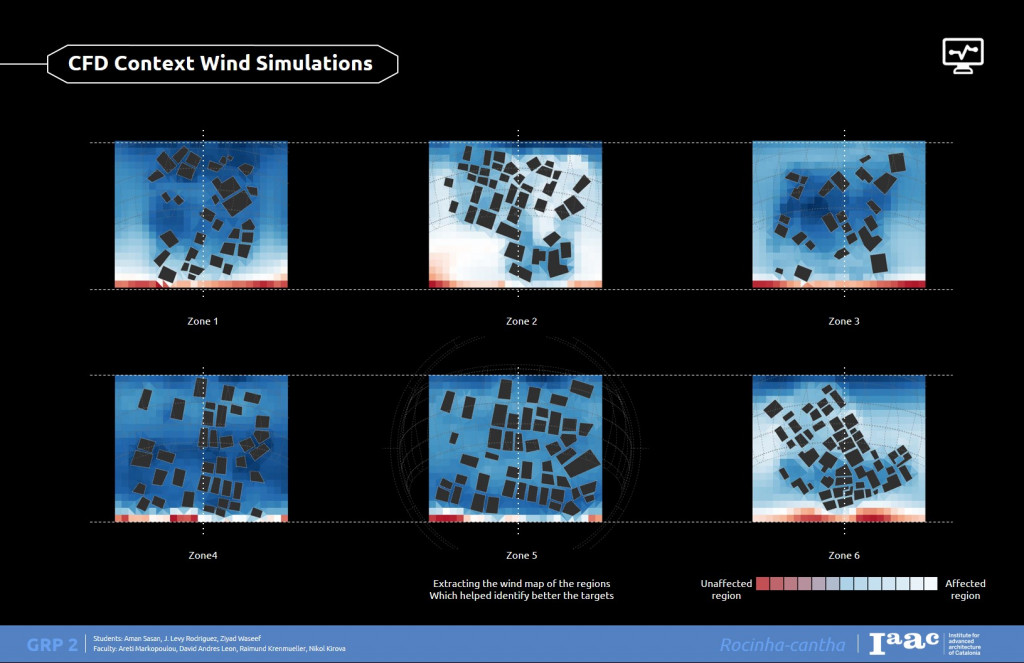
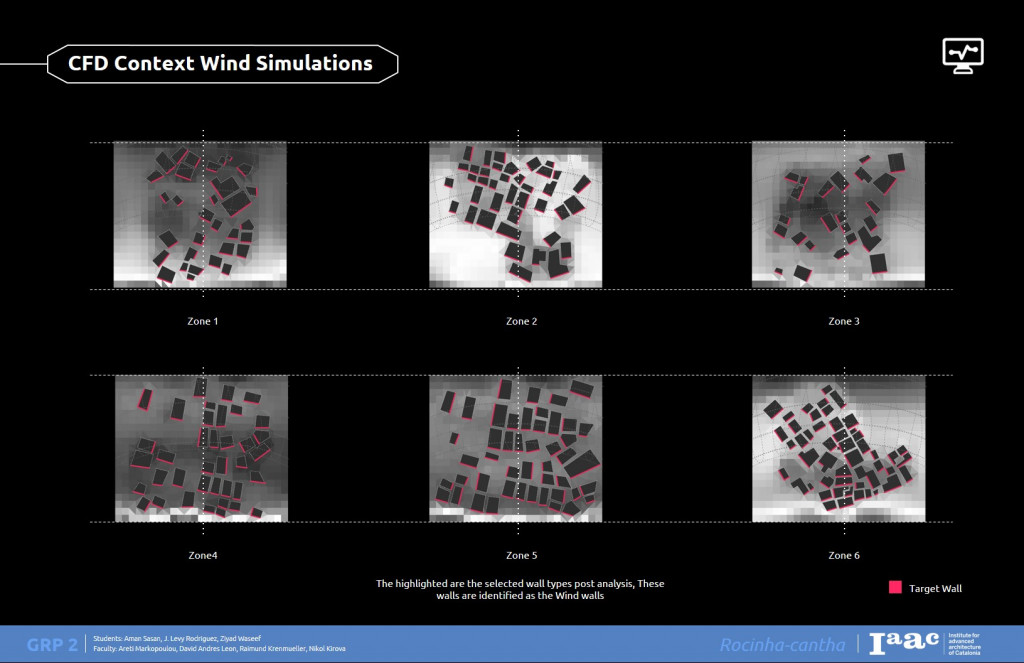
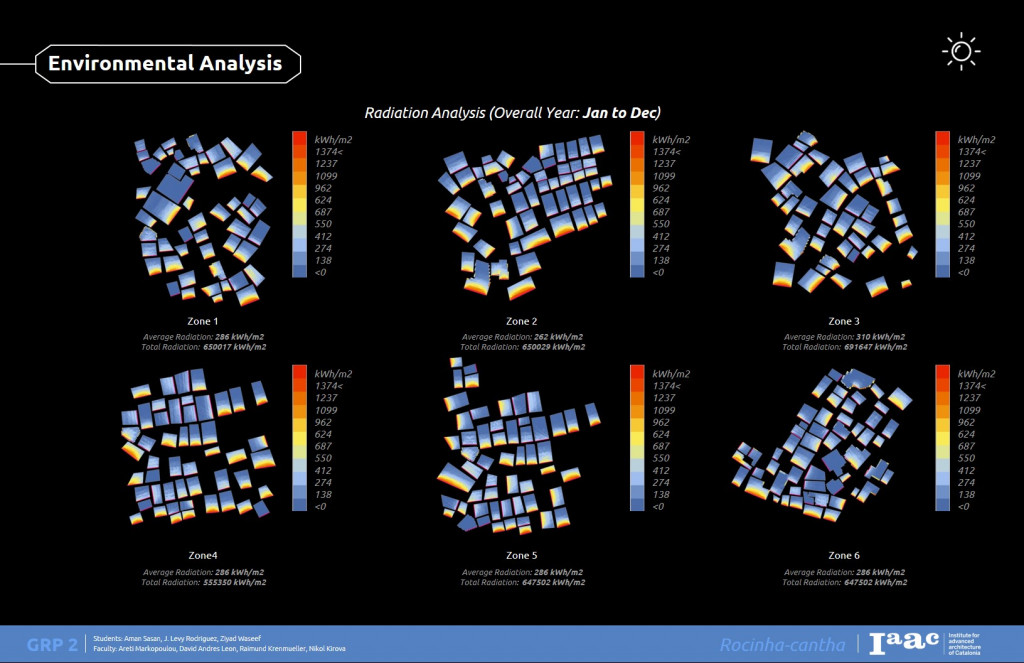
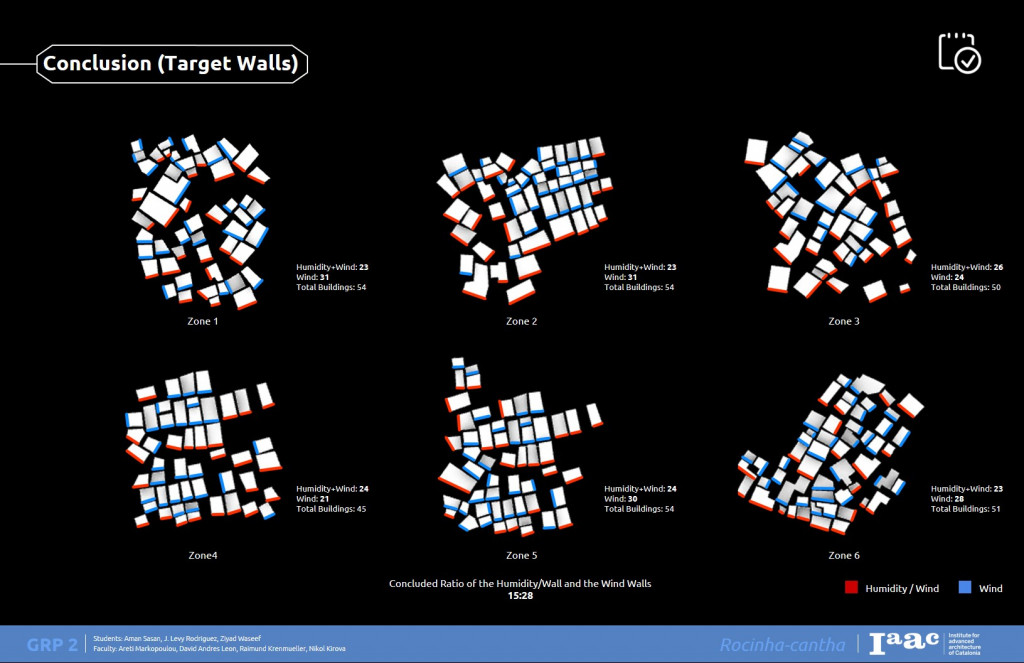
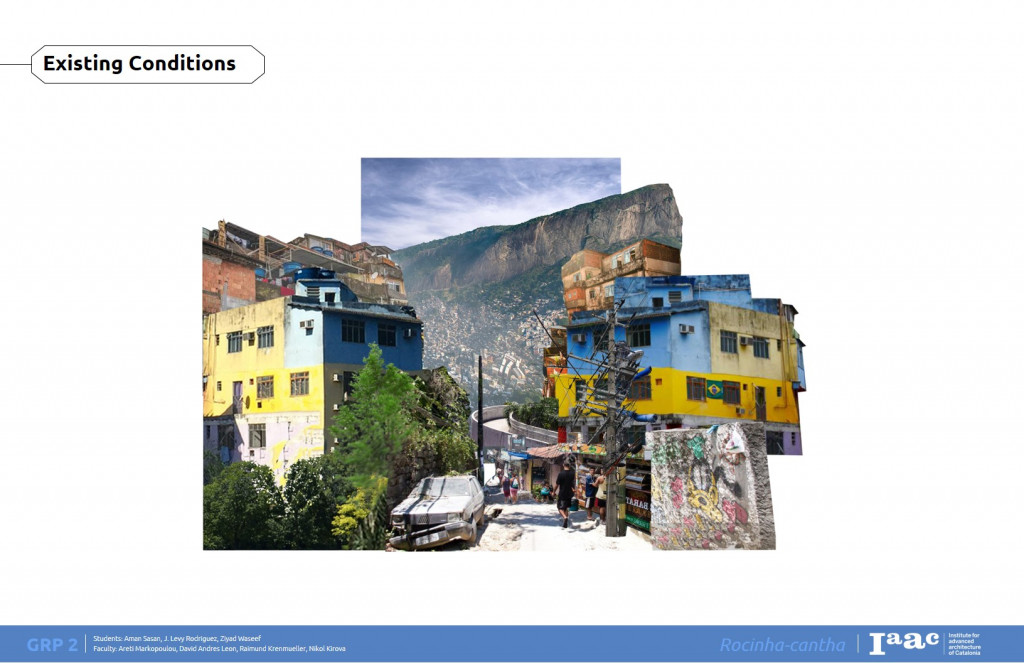
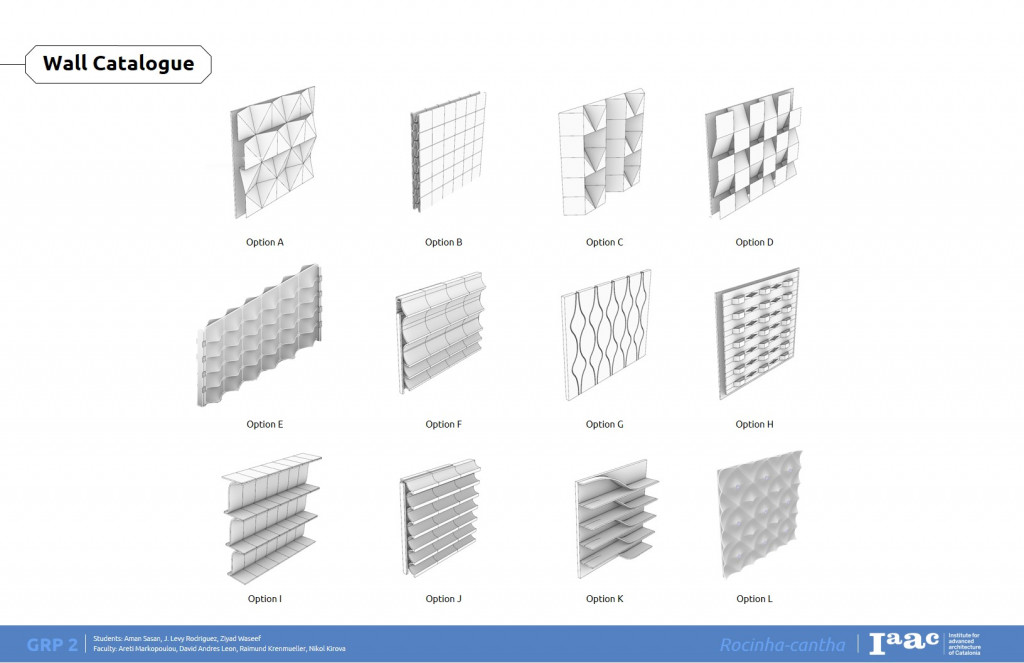
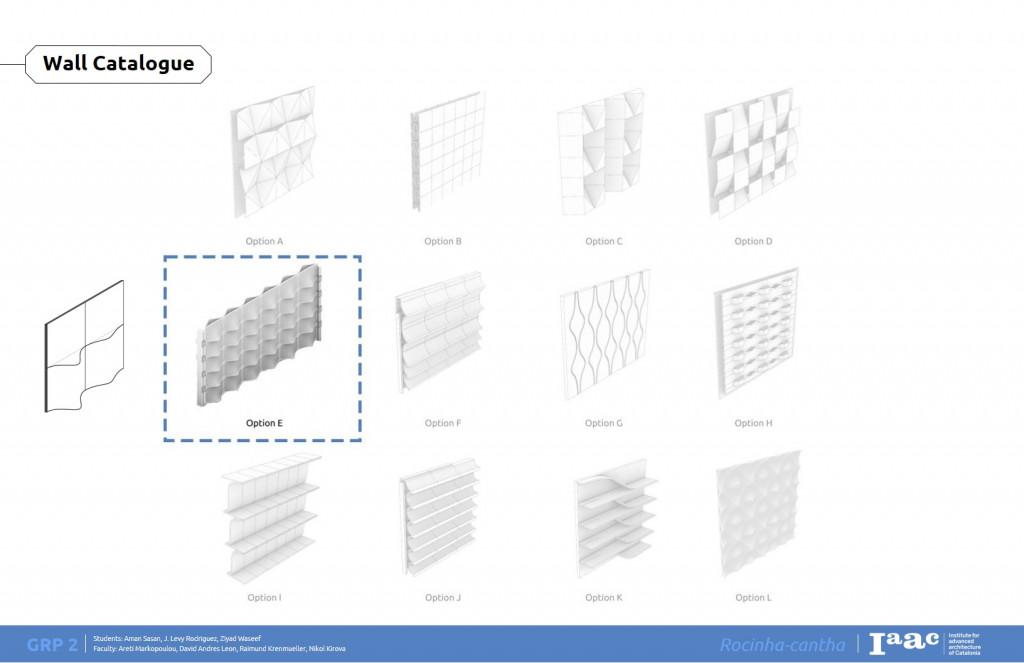
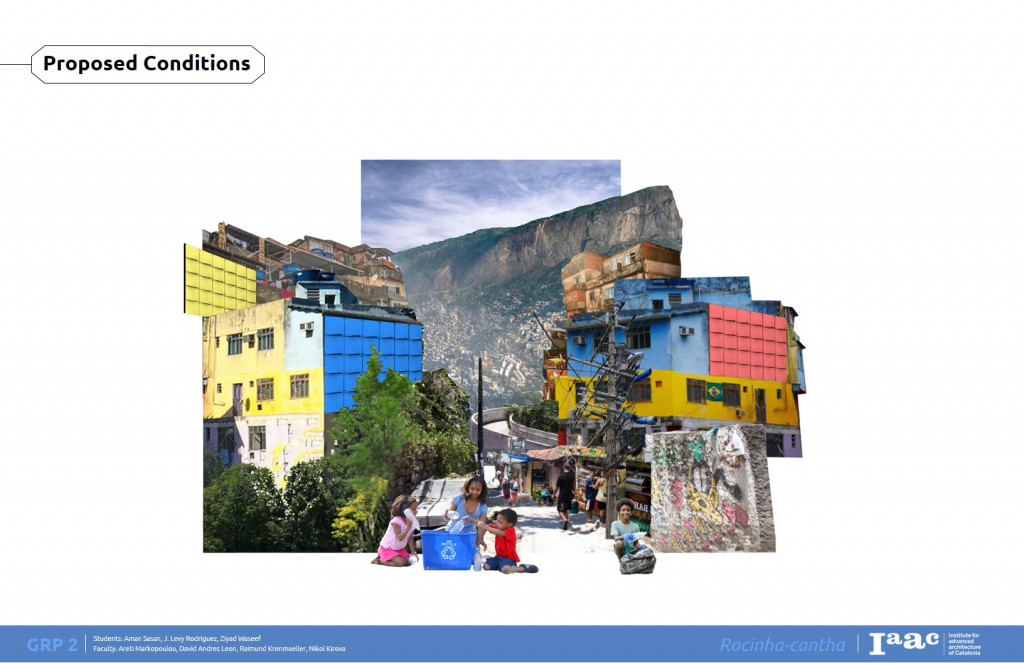
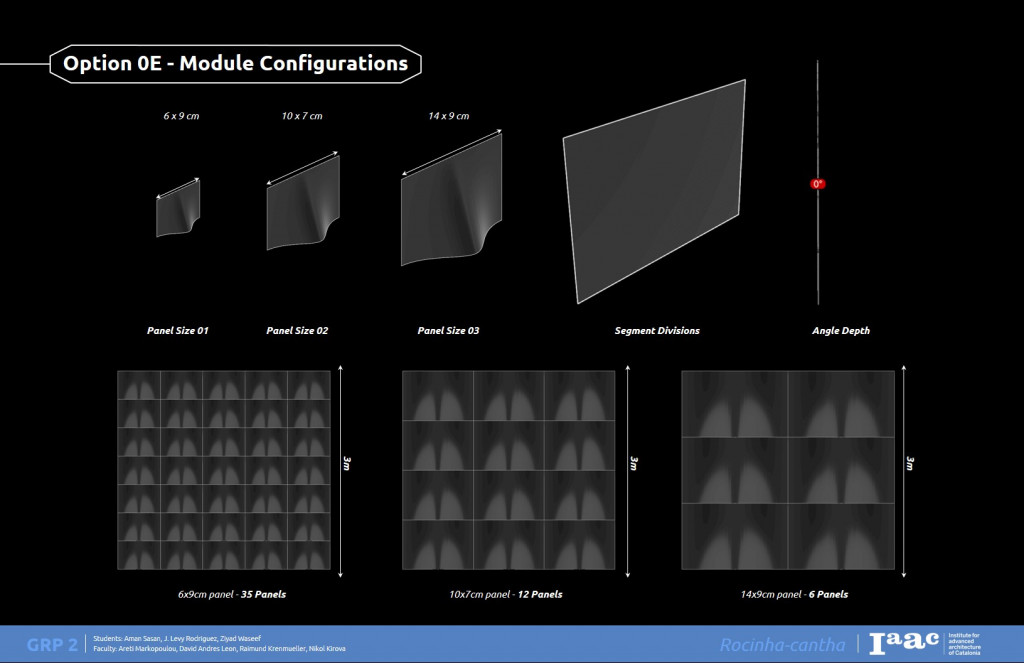
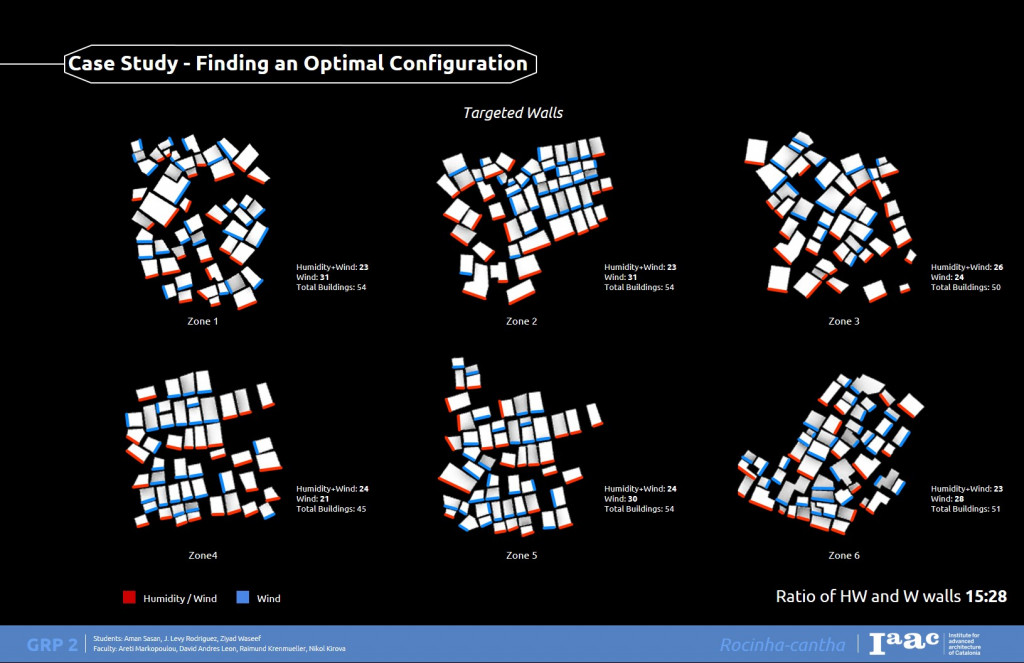
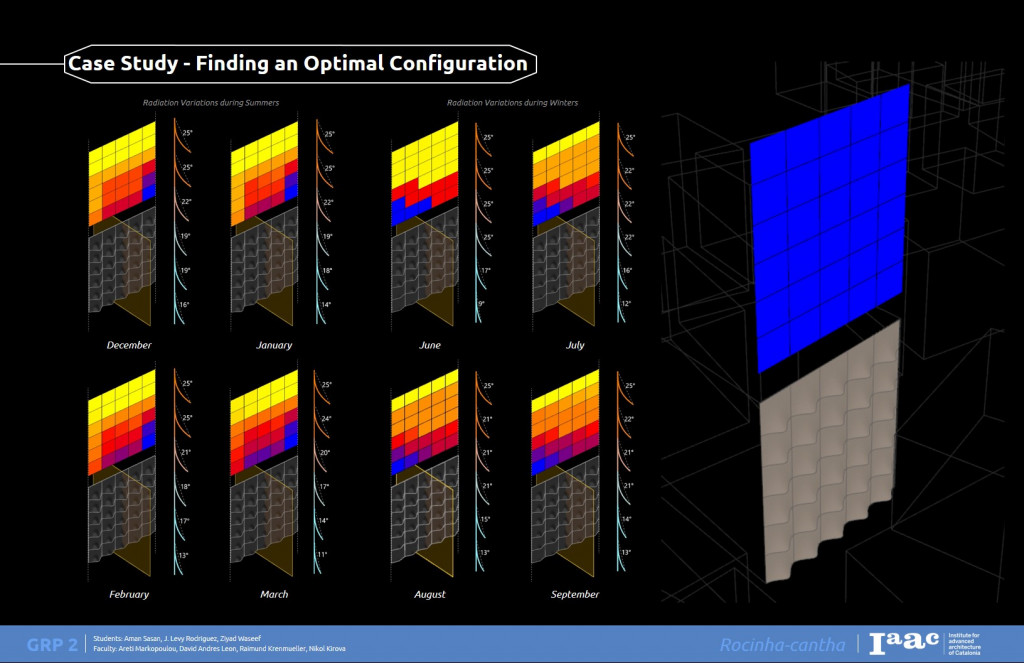
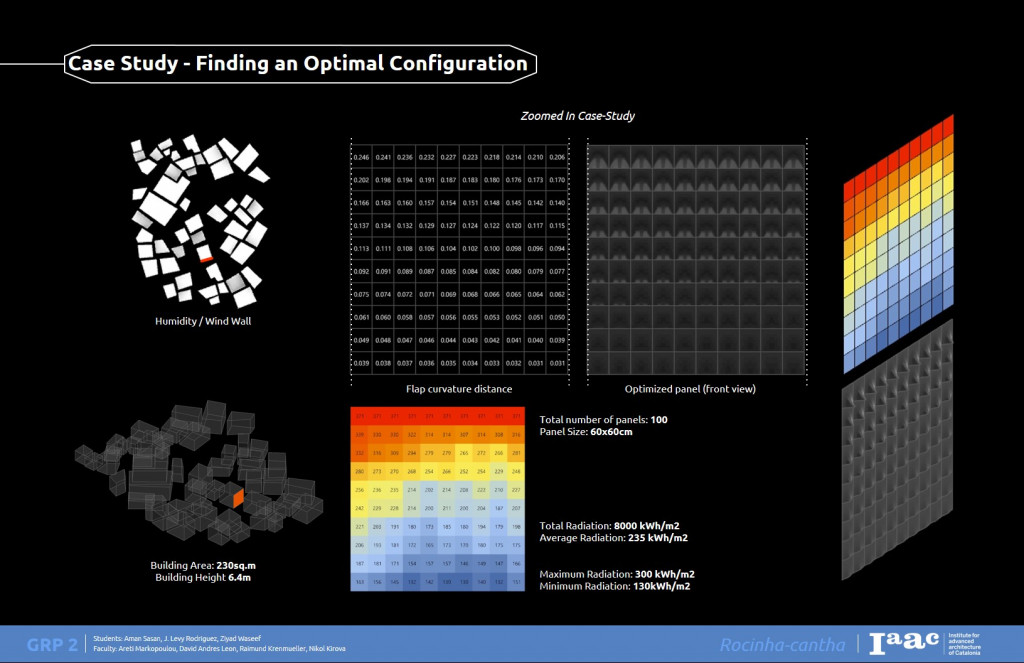













Credits:
Rocinha-cantha is a project of IAAC, Institute for Advanced Architecture of Catalonia developed in the Masters of Advanced Architecture 2020/21 by
Students: Amandeep Singh Sasan, J.Levy Rodriguez, Ziyad Waseef
Faculty: Areti Markopoulou, David Andrés León & Raimund Krenmüller
Faculty Assistant: Nikol Kirova
